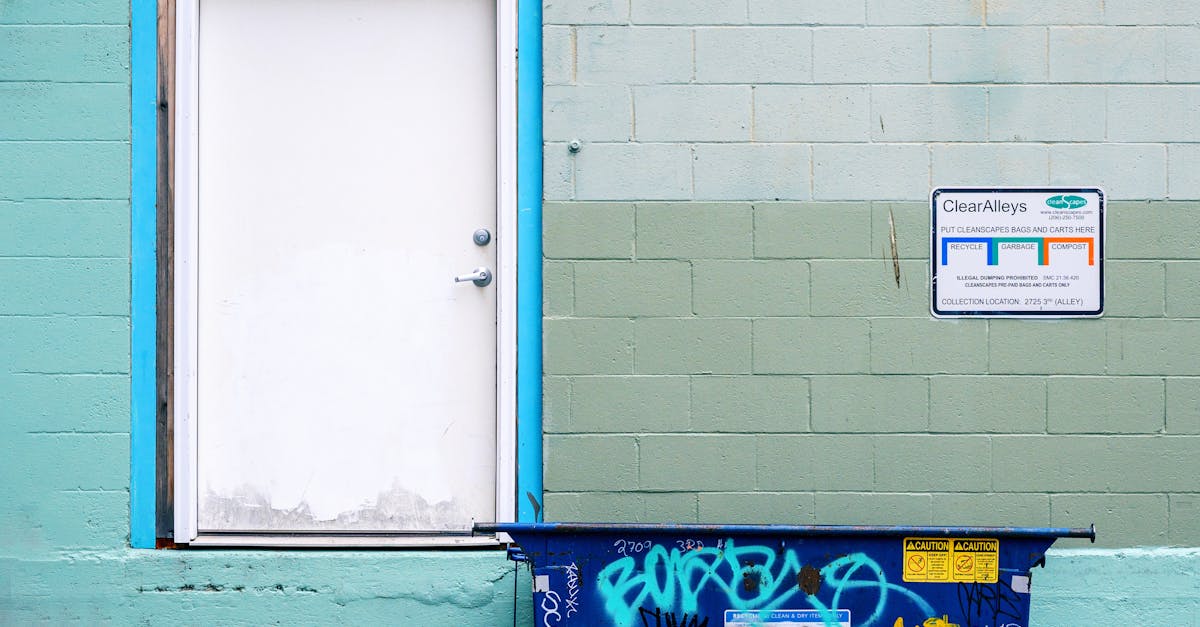How much does it cost to rent a dumpster in the US?

Common Uses for Rental Dumpsters
Renting a dumpster is essential for various projects that generate a significant amount of waste. Home renovations are a prime example, where homeowners often find themselves with old materials, such as drywall, flooring, and fixtures, that need immediate disposal. Construction sites also frequently utilize dumpsters to efficiently manage debris from ongoing work, keeping the area organized and safe for workers.
Events like community cleanups or neighborhood renovations benefit from dumpster rentals as well. They provide a convenient solution for collecting trash and recyclable materials. Additionally, large-scale decluttering projects or estate cleanouts often require a dumpster to handle the accumulation of unwanted items in a single go. These scenarios exemplify the importance of having the right disposal method at hand.
Home Renovations and Construction Projects
Renting a dumpster is essential for managing waste during various home renovations and construction projects. Whether it involves a kitchen remodel, bathroom overhaul, or a full-scale addition, these activities generate considerable amounts of debris, including wood, drywall, and old fixtures. A conveniently placed dumpster helps streamline the cleanup process, allowing homeowners and contractors to maintain a tidy work environment.
Construction projects, both large and small, produce waste that needs to be disposed of responsibly. From roofing jobs to landscaping renovations, having a dedicated dumpster on-site simplifies the collection and transport of materials, minimizing disruption to the overall workflow. Proper waste management not only helps in adhering to local regulations but also contributes to a more efficient project timeline.
How to Choose the Right Dumpster Size
Selecting an appropriate dumpster size is crucial for ensuring an efficient waste disposal process. Begin by assessing the type and volume of materials you need to discard. Consider the scope of your project; smaller renovations may require a 10 or 15-yard dumpster, while larger construction jobs or cleanouts might necessitate a 20-yard or 30-yard option.
It is beneficial to visualize the debris to better estimate the needed space. Many rental companies provide guides and charts to assist customers in determining the appropriate size based on their specific projects. Taking the time to evaluate the expected waste can prevent unnecessary costs from renting a larger dumpster than needed or additional fees for overfilling a smaller one.
Estimating Volume of Debris
Understanding the volume of debris generated by a project is crucial for selecting the appropriate dumpster size. Begin by assessing the types of materials you'll be disposing of. Concrete, wood, asphalt, and yard waste all have different weights and volumes, which will impact the total load. For instance, heavier materials like concrete require a smaller dumpster than lighter materials such as cardboard, as weight limits must also be taken into account.
Once you've categorized the waste, it can be helpful to use common measurements to estimate the volume. Many people find that visualizing the debris in terms of truckloads is useful. A standard truck bed holds approximately 2 cubic yards. If you figure out how many truckloads your debris will fill, you can then align that number with available dumpster sizes, ensuring you choose one that adequately meets your needs without overspending on excess capacity.
Tips for Saving on Dumpster Rental Costs
Renting a dumpster can be a considerable expense, but there are several strategies to minimize costs. One effective way is to compare multiple rental quotes from different providers. This not only helps identify the most competitive pricing but can also reveal variations in service inclusions. Keep an eye out for hidden fees associated with weight limits and overage charges, which can inflate the overall cost unexpectedly.
Another tip involves planning the project timeline efficiently. By organizing debris removal around specific work phases, one can optimize the rental period. Reducing the rental duration can lead to significant savings, as costs often increase with longer rental times. Additionally, organizing materials for disposal ahead of time prevents last-minute charges that may arise from rushed decisions.
Comparing Multiple Rental Quotes
When renting a dumpster, obtaining multiple quotes can provide a clearer picture of the market rates. Each dumpster rental company may have different pricing structures based on the service level, size of the dumpster, and duration of the rental. It’s beneficial to compare these quotes side by side. This approach helps identify the best value for your specific needs while ensuring you are not overpaying for the service.
In addition to pricing, evaluating the terms of each rental agreement is essential. Some companies may include additional fees such as delivery, pickup, or weight overages. Others may offer discounts for longer rental periods or upfront payments. Scrutinizing these factors alongside the base price guides renters toward a more informed decision, helping secure the most suitable option for their project.
FAQS
What is the average cost of renting a dumpster in the US?
The average cost of renting a dumpster in the US typically ranges from $300 to $600, depending on factors such as size, location, and rental duration.
How do I determine what size dumpster I need for my project?
To determine the right size dumpster, estimate the volume of debris you'll generate based on your project type, such as home renovations or construction. It’s often helpful to consult with the rental company for their recommendations.
Are there any additional fees I should be aware of when renting a dumpster?
Yes, additional fees may include charges for exceeding weight limits, extended rental periods, delivery and pickup fees, and disposal fees for hazardous materials.
Can I rent a dumpster for just one day?
While many rental companies offer daily rates, most require a minimum rental period of a few days. It's best to check with the specific company for their policies.
What are some tips for saving money on dumpster rental costs?
To save on costs, consider comparing multiple rental quotes, choosing the right size dumpster to avoid overage fees, scheduling your rental during off-peak seasons, and planning your project efficiently to minimize rental time.